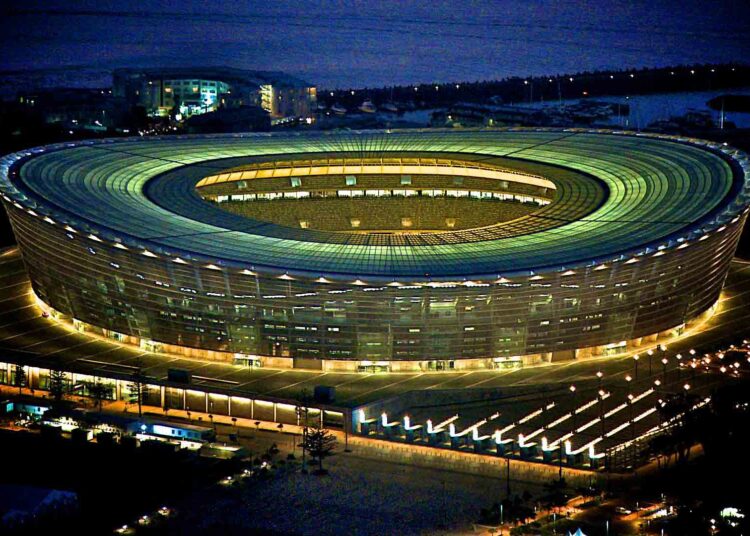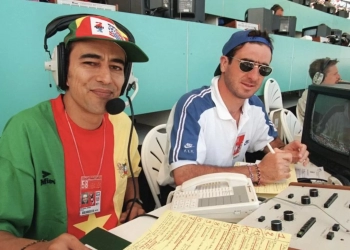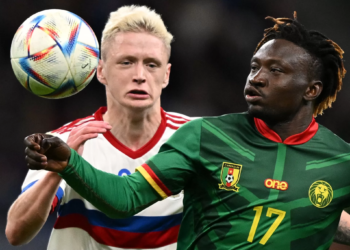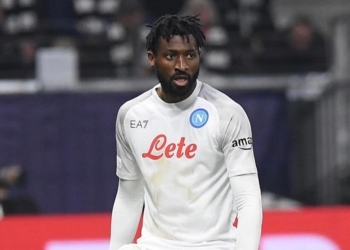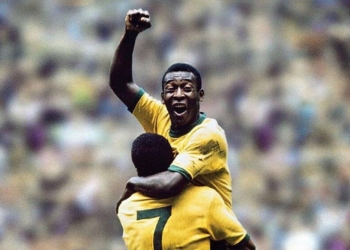The 4-0 defeat against Croatia exposed the wide chasm that had opened between Cameroon’s self-image and its true position in world football since 1982. The next 32 years — with one brief interruption in 1990 — retold that story over and over again.
One shouldn’t look at victory’s teeth. The point is, you should enjoy your win, not overanalyse it. And that is, of course, a completely wrong attitude and one that leads to a loser’s mentality, because there is just as much to learn from your wins as there is from your defeats.
If you look at the drubbing of Cameroon at the World Cup, you would find the Indomitable Lions in very poor dental health to further the analogy. They were clearly falling apart before everyone’s eyes. They committed the stupidest, most obvious foul of the tournament that led to Alex Song being sent off; their defensive transition was outrageously bad; and they scuffled amongst themselves on the pitch.
Cameroon has long been aware of the problem, but they fail to learn from their past failures. Instead, they react to them, violently, like a driver who abruptly leaves his lane to avoid an obstacle. Every tournament seems to be played out as a belated riposte to the ills that have gone just before.
Finke came in after AFCON 2013, determined to stop Cameroon from getting embarrassed as they were in South Africa. His answer was a radically defensive setup, with a bank of four in front of goal, three defensive midfield stalwarts and two forwards who were told to track ball during off-the-ball moments. This perfectly decent, if limited, strategy brought results (of sorts): Cameroon went home technically defeated and the negative approach played badly at home with fans, pundits and the media.
The preparation was detailed and intense but sensible and relaxed. And still the fundamental shortcomings of the nation’s footballers have been exposed.
In the final analysis, most fans said before the tournament that the minimum they wanted to see was evidence of improvement and hope for the future. The disappointment over the display against Croatia stemmed from their absence.
The plain fact is Cameroon are not good enough and do not have enough performers of serious international quality and stature to make an impression on these big occasions.
Not a single Cameroon supporter I met, nor any comment I saw on the web suggested Cameroon would progress very far in this tournament; most thought the squad would do well to emerge from a tough group. Considering expectations, it’s rather odd to see the outpouring of frustration and anger from the Cameroonian public.
The consequence is that Cameroonian football will begin yet another period of soul-searching as it looks for the answers to what went wrong in a World Cup campaign that lasted for just six days.
The national team has been failing for decades and attempts to turn on current players, the manager or tactics are utterly pointless. Those doing the shouting haven’t been any more successful than those soon coming home. Cameroon football has long been in a mess; the grass roots of the game are where the problems lie and even if this were to be addressed tomorrow, it would still be another two or three World Cups before Cameroon reaped the benefits.
There is a widespread and entirely incorrect perception that the sole point of football is to score more goals than the opposition. In fact it is just as important to concede fewer goals. Football is a game of two halves, attacking and defending, yet much of the time we only concern ourselves with the former.
In a sense, that’s fair enough. Attacking: that’s the good stuff, the bit that stirs the soul of fans and the ego of players. No kid ever wanted to play centre-back in the playground; no crowd ever chants “Defend defend defend!” When Ruud Gullit coined the phrase “sexy football” in reference to Portugal at Euro 96, he wasn’t referring to Fernando Couto winning high balls.
In some countries, particularly Brazil, it is a philosophical issue. That is all fine and correct, yet when it comes to winning – which rightly or wrongly has become by far the most important thing in modern football – attacking and defending are of equal importance. Yet still we allow our judgement to be skewed.
Rather than turning on yet another failing crop, critics must look deeper. Only then might Cameroon football extricate itself from the mire it has wallowed in for so long.
So let’s not completely blame the players. The manager must come under the spotlight. But with Cameroon’s World Cup dreams over for another four years, Finke also looked to the future. « We have to look forward because there are some players for the future in this team, » he said. « This is why we have to go straight and look in the right direction. »
FECAFOOT seems intent on hiring foreigners, but there are no rules on saying you have to. In my view, getting a second-rate foreigner above a first-rate local, who can take the national team forward, is madness in the extreme. Either way, Finke’s position should — and must — come under scrutiny after Cameroon’s dismal World Cup failure.
« When you get better as a national team, you get more attention from abroad. It then allows players to go into more competitive leagues. Then that circles back and you bring that experience into the national team. » Alejandro Moreno, Football analyst, when talking about African Football.
Ndansi Elvis, a seasoned politician, gives a befitting conclusion to the saga: “This is just an eye opener-lets now focus on dealing with Boko haram, corruption, unemployment, poverty, HIV/AIDS and Malaria, Flooding and malnutrition in the North, and thousands of women who still die after birth due to postpartum haemorrhage”.
Raymond Elume, Yaoundé, Cameroon – Blogue Camfoot
NB : This is a opinion piece. Feel free to send yours at redaction@camfoot.com

